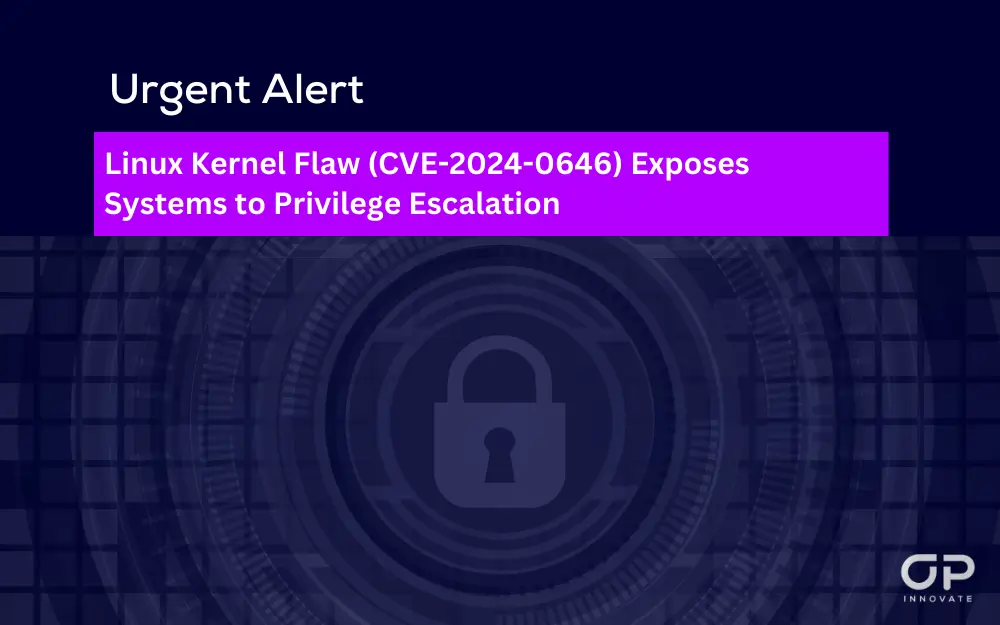A significant vulnerability (CVE-2024-0646, CVSS 7.8) has been identified in the Linux Kernel’s Transport Layer Security (kTLS) subsystem. This flaw could allow local users to gain elevated system privileges or disrupt system operations. Patches for this vulnerability are now available and should be applied immediately.
Vulnerability Details:
- CVE ID: CVE-2024-0646
- CVSS Score: 7.8 (High)
- Affected Component: Linux Kernel kTLS
- Impact: Privilege escalation, data exposure, system disruption
Description:
The kTLS subsystem in the Linux Kernel enables direct TLS encryption and authentication functions within the kernel, supporting secure communication for protocols like HTTPS, email, and other internet-connected applications.
The vulnerability arises from improper memory handling when the splice() function is called. Specifically, the kTLS code fails to correctly update the internal accounting of the plaintext scatter-gather buffer, leading to an out-of-bounds memory write flaw. This issue can allow subsequent writes to the socket to overwrite the contents of spliced pages, including pages from files that the caller should not have write access to, potentially leading to unintended code execution with elevated privileges.
Threat Implications:
- Privilege Escalation: Local users with basic access could exploit this flaw to gain root-level (administrative) privileges on a vulnerable system.
- Data Exposure: Compromised systems might inadvertently reveal sensitive data from protected memory areas.
- System Disruption: Attackers could use this exploit to trigger a system crash, resulting in a denial of service.
Mitigation:
Linux system administrators should update to kernel version 6.7-rc5 or later, where the fix for CVE-2024-0646 is included. For distributions that may be slower to update the kernel, check your vendor’s security advisories for possible backported patches.
Recommendations:
- Immediate Update: Apply the patch for CVE-2024-0646 as soon as possible to prevent exploitation.
- Monitor Systems: Keep an eye on system logs and performance indicators for signs of unauthorized access or unusual activity.
- Regular Updates: Maintain a regular schedule for updating the Linux kernel and other critical software to ensure protection against known vulnerabilities.
Conclusion:
The CVE-2024-0646 vulnerability in the Linux Kernel’s kTLS subsystem is a high-risk issue that requires prompt attention. By updating to a patched kernel version and maintaining vigilant security practices, you can protect your systems from potential exploitation and ensure the continued security of your digital infrastructure.
Stay safe and informed,
OP Innovate Security Team









